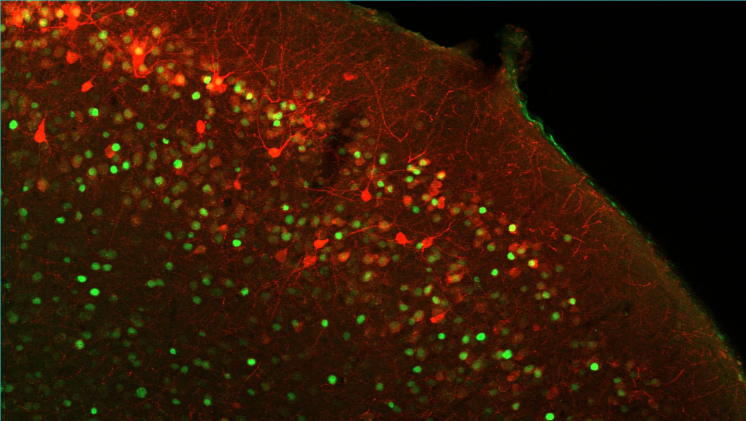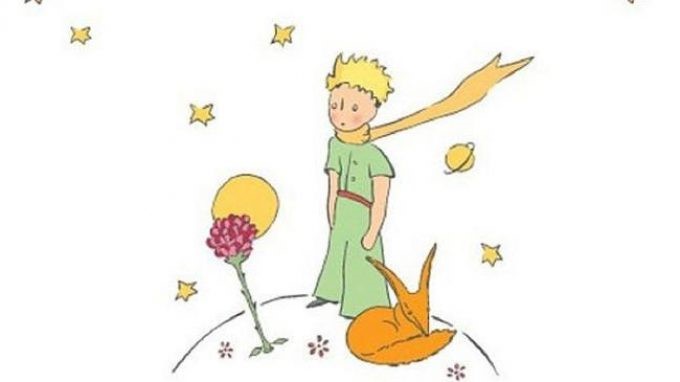IN Pisa
Seminar: Active foveal vision: insights from oculomotor behavior and retinal imaging
Martina Poletti
University of Rochester
11th April 2025 - 11.00 am
Flyer
IN Milano
Symposium: Exploring new therapeutic targets for brain disorders
Organizer
Carlo Sala, CNR Neuroscience Institute, Milan, Italy
Erika Dona’, CNR Neuroscience Institute, Milan, Italy
9th June 2023 - 2.00 pm - 6.30 pm
Flyer
IN Pisa Talks
Prof Kerry Walker - Dep of Physiology, Anatomy & Genetics - University of Oxford
Hearing in an acoustically varied world
3rd April 2023 h 2.30 pm
Locandina
IN PisaTuesday WebTalks
IN PisaTuesday WebTalks
Dr Vidhya Madapusi Ravi Medical Center - University of Freiburg
The interplay between Glioblastoma and its Microenvironment
13rd October 2022 h 9.30 am
Locandina
IN PisaTuesday WebTalks
Dr Maria Chiara Trolese - Mario Negri Institute for Pharmacological Research IRCCS
TCXCL13/CXCR5 signalling is pivotal to preserve motor neurons in amyotrophic lateral sclerosis
09th June 2022 h 9.30 am
Locandina
IN PisaTuesday WebTalks
Dr. Giovanni Ferrara - IRCCS Ospedale Policlinico San Martino
Toward a new tolerogenic strategy: dendritic cells educated upon specialized pro-resolving mediators as possible therapeutic agents in neuroinflammation
26th May 2022 h 9.30 am
Locandina
IN PisaTuesday WebTalks
Dr Simona Balestrin - University of Florence The genetic of epilepsy today
16th November 2021 h 4.00 pm
Locandina
Corso FAD - Webinar 19 Ottobre 2021
ICTUS - dal laboratorio al letto del malato
Per informazioni e prenotazioni www.datre.net/ictus
Locandina
"In vivo wide-field imaging of distributed cortical activity"
Dr. Letizia Allegra Mascaro
15.12.2020 14:00 Neuroscience Conference Server: http://conference.in.cnr.it/b/ren-a0z-1fs
"Activity dependent neuroprotection induced by gamma-range stimulation in the acute phase after stroke"
Dr Matilde Balbi (Queensland Brain Institute, Brisbane)
Pisa 07.12.2020,09:30 - Neuroscience Conference Server: http://conference.in.cnr.it/b/ren-2na-hle
"Autism spectrum disorder: from gene discovery to functional insights"
Silvia De Rubeis, Assistant Professor Department of Psychiatry, Seaver Autism Center for Research and Treatment, Mindich Child Health and Development Institute, Friedman Brain Institute, Icahn School of Medicine at Mount Sinai (New York)
Milano 04.12.2020 16:00
“Beyond Amyloid: Physiological function of the Amyloid precursor protein”
Stefan Kins (Technische Universität Kaiserslautern, Germany)
Milano 30.10.2020, 12:00 - Neuroscience Conference Server: http://conference.in.cnr.it/b/ren-mhk-n3j
Introduced by Maria Luisa Malosio
"Immune receptor - endocannabinoid - NMDAR plasticity axis in adult hippocampus"
Dr Maja Djurisic (Stanford University)
Pisa 27.10.2020,16:30 - Neuroscience Conference Server: http://conference.in.cnr.it/b/ren-2na-hle












 Within the medial temporal lobe memory system, the main pathway for the transmission of sensory information to the hippocampus is represented by the entorhinal cortex (EC). We have demonstrated that the lateral entorhinal cortex (LEC) activation is crucial for episodic-like memory in mice. In particular, electrophysiology in brain slices revealed that OPCRT specifically induces a shift in the threshold for the induction of synaptic plasticity in LEC superficial layer II. Additionally, a dual viral system was used to express chemogenetic receptors coupled to the c-Fos promoter in neurons recruited during the learning. The inhibition of LEC neurons impairs the performance of the mice in the memory task, while their stimulation significantly facilitates memory recall. Our findings provide evidence for an episodic-like memory engram in the LEC and emphasize its role in memory processing within the broader network of episodic memory (Tozzi et al., 2024).
Within the medial temporal lobe memory system, the main pathway for the transmission of sensory information to the hippocampus is represented by the entorhinal cortex (EC). We have demonstrated that the lateral entorhinal cortex (LEC) activation is crucial for episodic-like memory in mice. In particular, electrophysiology in brain slices revealed that OPCRT specifically induces a shift in the threshold for the induction of synaptic plasticity in LEC superficial layer II. Additionally, a dual viral system was used to express chemogenetic receptors coupled to the c-Fos promoter in neurons recruited during the learning. The inhibition of LEC neurons impairs the performance of the mice in the memory task, while their stimulation significantly facilitates memory recall. Our findings provide evidence for an episodic-like memory engram in the LEC and emphasize its role in memory processing within the broader network of episodic memory (Tozzi et al., 2024).